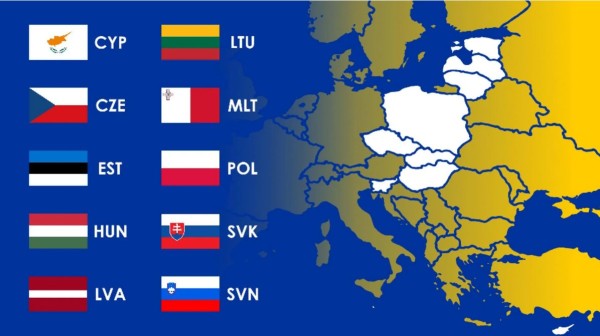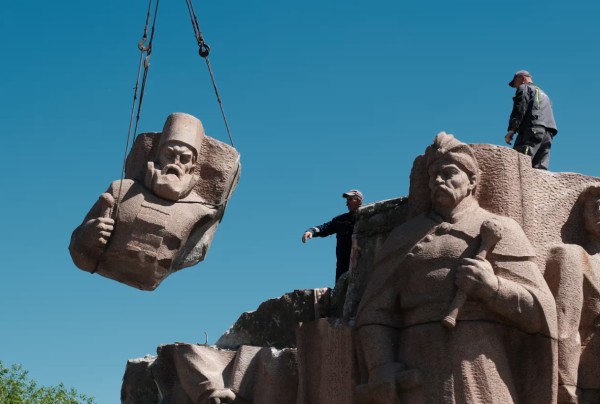Ambassador Richard S. Williamson
In Warsaw, during the annual two-week human rights meeting of the Organization for Security and Cooperation in Europe, Russia sought to crowd out civil society, support anti-democratic forces, and intimidate Europe. In other words, Russia acted as she normally does these days. And as head of the U.S. delegation to the Warsaw Conference, I sought to resist them at every turn. To paraphrase Adlai Stevenson, as Russia continues to tell lies about us, we will continue to tell the truth about them.
Thirty-two years ago the Helsinki Final Act was signed by 35 nations. Due to the new map of Europe and Central Asia, the OSCE's membership has grown to 56 countries stretching from Vladivostok to Vancouver. Over the years each OSCE participating state has committed themselves to a wide range of standards on human rights, democracy and the rule of law.
During the Cold War, the Soviets and others in the communist block simply ignored their obligations. But refuseniks and other dissidents found it useful to challenge their governments on the human rights standards they had pledged to support but ignored in practice. For those in power in totalitarian communist regimes the OSCE commitments were an annoyance but not a major impediment.
However, as Russia has pursued its authoritarian drift in recent years, these OSCE obligations have proven intolerable. OSCE field missions and election observer missions have contributed to Georgia's Rose Revolution, Ukraine's Orange Revolution and the Tulip Revolution in Kyrgyzstan. In other words, the OSCE has helped democrats in these Near Abroad countries advance the March of Freedom.
So for 4 years, Moscow has sought to weaken the OSCE; centralize control of field missions and render election observer missions impotent. Moscow has tried to redefine commitments on human rights, democracy and the rule of law so they would be meaningless. Russia is supported by Belarus and Central Asian authoritarian regimes in this quest. And Moscow seeks to bully European capitals, many dependent on Russian oil and gas, into acquiescence. For Russia, at the OSCE, black is white, war is peace, and commitments are for selective convenience. And just as Putin has done in Russia, Moscow seeks to crowd out civil society at the OSCE.
At the latest session, Russia tried to exclude the Russia-Chechen Friendship Society, a Russian non-governmental organization long critical of government policy in Chechnya. This organization was the 2003 laureate of the International Helsinki Commission. As has happened to over 2,300 Russian NGOs, after years of persecution, the organization was shut down by the government. When the Russian delegates' efforts at OSCE exclusions failed, they walked out of the Warsaw meeting when the Russia-Chechen Friendship Society was recognized to review the particulars of Russia's failures.
A leader of the Russian-Chechen Friendship Society, Oksana Chelysheva, told me about growing repression at home. She said, "The Russian authorities are very concerned by the tendency of people to get united in civil society. The Kremlin is not doing something real in combating terror in Russia. They use the anti-terrorism and extremism laws to stir up fear and then target individuals. The Police Special Department to combat extremism tries to fabricate criminal charges. We have become targets. They target us to send a message to others. ...The Kremlin's over-reaction shows they are not so secure. They fear the people. There is a saying, "When the wolf is wounded he can bite a lot."
Oksana went on to say, "At some time it is our duty to raise these issues, to speak up for those people falsely arrested and against the greater repression that is coming. This OSCE meeting is important because it is the only place we can be heard." She told me, "The authorities do feel concern by the opinion of the outside world."
As Genrikh Reznik, Chairman of the Moscow Bar Association told me over lunch, "Russia's assault on the OSCE proves that OSCE criticism makes them uncomfortable."
No government is perfect. A number of American and International NGOs criticized the United States and our closest allies. Every government has room for improvement.
But for a democracy to exist there must be guardrails such as the rule of law which limit government power and allow for a rambunctious, vibrant civil society.
In Warsaw I said the United States "remains concerned that actions such as the effort to bar RCFS from this session are symptoms of a much broader negative trend with respect to democracy and democratic institutions within Russia. We are concerned about the misapplication of the law on extremism and the law on terrorism to limit legitimate NGOs and their activities. The increasing pressure on Russian journalists is likewise troubling. Actions to suppress genuine opposition, abridgement of the right to non-violent protest, constriction of civil society, and the decline of media freedom are all serious setbacks. They are inconsistent with the Russian Federation's OSCE commitments to building and preserving the foundations of a democratic state."
The next tests for Russian democracy will be the Duma elections in December and the Presidential election in March 2008. Will Moscow allow international election observers - OSCE and others - to judge whether the election is free and fair?
Why does Russia's authoritarian drift matter to us?
First, it should be of concern because, as Ronald Reagan said, "Liberty is not just for the lucky few, but the inalienable right of all mankind."
Second, enduring partnerships are based on shared values. As Russia retreats from respect for human rights and anti-democratic forces gain, the U.S./Russia relationship becomes increasingly difficult.
Third, as events in Warsaw and elsewhere demonstrate, Russia is not content to let authoritarian forces gain just at home. Moscow seeks to advance anti-democratic forces elsewhere. Moscow seeks to strengthen its influence by supporting authoritarians in its neighboring states. Meanwhile, they try to crowd out the universal values to which all people are entitled and to which Russia and all 56 OSCE participating states have committed.
So in Warsaw we pushed back. America and our closest allies must continually resist Russia's authoritarian drift. Our self-interest should lead us to do so. And our commitment to those oppressed must compel us to do so.
As Dzmitry Markusheuski of the Belarus Helsinki Commission said to me, "The position of some governments should be stronger. It's not a request for kindness. It's a demand for governments to live up to their commitments."
( TCS Daily, 18 Oct 2007)
Russia Being Russia (1)
Archived Articles | 24 Oct 2007 | EWR
Viimased kommentaarid
Kommentaarid on kirjutatud EWR lugejate poolt. Nende sisu ei pruugi ühtida EWR toimetuse seisukohtadega.
When you publish articles, speeches or information from other publications, please spell out the name of the author and his or her title (if he/she has one)
For example, Ambassador Richard S. Williamson -- Ambassador from where (I presume US) and also please cite
magazine or source consistently, in all articles, rather than just some of the time.
Some of the articles on this site list sources correctly, but many of them list no sources or an abbreviation which is not known to the general public (such as "TCS Daily"--what is that?)
For example, Ambassador Richard S. Williamson -- Ambassador from where (I presume US) and also please cite
magazine or source consistently, in all articles, rather than just some of the time.
Some of the articles on this site list sources correctly, but many of them list no sources or an abbreviation which is not known to the general public (such as "TCS Daily"--what is that?)
Archived Articles
TRENDING




















